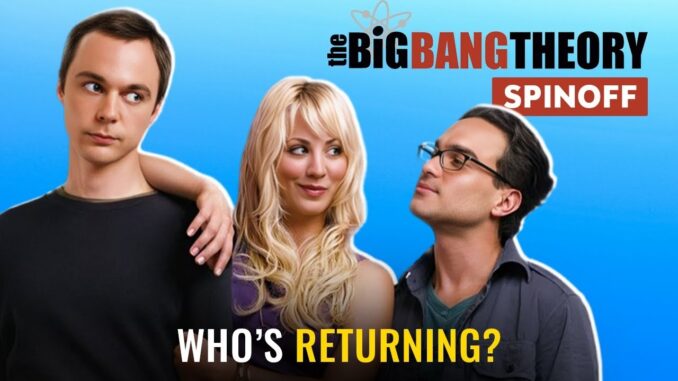
The Echo of the Big Bang: On the Spinoff of a Sitcom Phenomenon
The universe, as we know it, began with a bang – a singularity expanding into the vast, intricate tapestry we now inhabit. In the realm of pop culture, a similar, albeit less primordial, event occurred in 2007 with the premiere of The Big Bang Theory. For twelve seasons, its quirky humor and relatable characters resonated with millions, forming a constellation in the prime-time sky. Now, years after its grand finale, whispers from the cosmic void have confirmed it: the Big Bang Theory universe is set to expand once more, with an official spinoff series in the works. This news isn’t merely a programming announcement; it’s a fascinating cultural phenomenon, a collision of nostalgia, commerce, and the eternal human desire for comfort and continuation, much like an echo reverberating through a familiar, beloved universe.
In the voracious appetite of the streaming wars, where intellectual property is the most coveted dark matter, a proven entity like The Big Bang Theory is a gravitational anomaly too potent to ignore. The original series, anchored by its lovable band of socially awkward scientists and their street-smart neighbor, became a global phenomenon, transcending niche humor to become a household name. It offered a unique blend of intellect and slapstick, pop culture references and genuine heart, proving that “nerd culture” had truly gone mainstream. The financial success, the syndication deals, the devoted fanbase – these are the powerful forces that compel networks and production companies to revisit established universes. A spinoff isn’t just a new show; it’s a strategic calculation, a calculated risk designed to capitalize on pre-existing affection, offering comfort food in an increasingly fragmented and uncertain media landscape. It’s the entertainment industry’s equivalent of looking for habitable planets within a known solar system.
The cosmic irony, however, lies in the inherent peril of such an endeavor: can lightning strike twice in the same narrative universe, or will the new series be merely an echo, faint and hollow, of a louder, more vibrant bang? The success of The Big Bang Theory was, in many ways, an alignment of stars: the perfectly cast ensemble, the evolving character arcs (Sheldon’s growth, Penny’s ambition, Leonard’s quiet heroism), and a writing team adept at blending intricate scientific concepts with universal human foibles. The challenge for any spinoff is to capture that unique alchemy without simply rehashing what came before. Young Sheldon, for instance, carved its own niche as a prequel, exploring the formative years of its most iconic character with a different tone and narrative structure. A new spinoff, depending on its focus – perhaps following a minor character, introducing a new generation, or exploring a different corner of the TBBT world – must find its own gravitational pull, its own unique frequency. It cannot merely orbit the memory of its predecessor; it must strive to become a new, compelling celestial body.
For the legions of fans, the announcement sparks a blend of excitement and trepidation. There’s the undeniable thrill of revisiting a beloved world, of potentially encountering familiar faces or discovering new ones that resonate with the same charm. It’s the comfort of returning to a favorite armchair, a familiar sitcom cadence, a laugh track that feels like home. Yet, there’s also the nagging fear of dilution, of an unnecessary extension that tarnishes the perfect ending. Will the new series expand the universe in a meaningful way, introducing fresh dynamics and compelling stories, or will it merely recycle tropes, proving that some comedic formulas, like certain scientific theories, are best left undisturbed in their original, elegant form? The audience, much like astronomers gazing at newly discovered galaxies, will be watching closely, hoping for a supernova of creativity, but wary of a rapidly cooling star.
Ultimately, the official greenlight for a new Big Bang Theory spinoff is a testament to the enduring power of popular culture and the cyclical nature of storytelling. It signifies a recommitment to a universe that, for many, offered not just laughs, but also a sense of belonging and intellectual curiosity. As the details emerge – the premise, the cast, the creative team – the anticipation will build, an energy expanding through the fandom. Whether this new series becomes a vibrant, essential part of the Big Bang Theory legacy, or simply a faint afterglow, remains to be seen. But one thing is certain: the echo of the Big Bang, both cosmic and comedic, continues to reverberate, inviting us to observe its next grand expansion.
